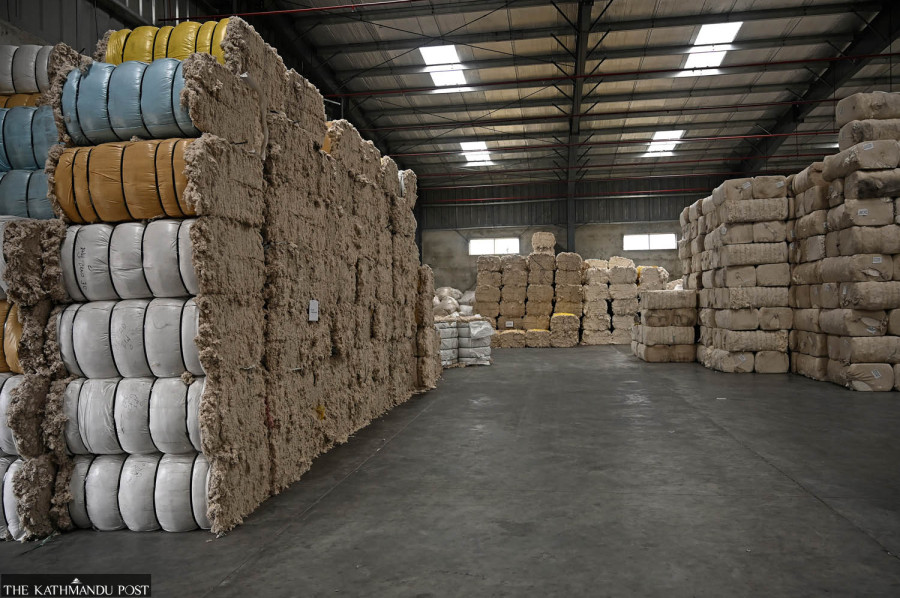Money
Export hurdles ease as BIS certifies 129 Nepali firms
According to the data, 112 manufacturers have certificates valid from April 2025 to February 2026.
Post Report
The Bureau of Indian Standards (BIS), the national standards body of India, has issued quality certification to 129 Nepali manufacturers who export their products. This requirement came into effect in September last year.
Although India made the BIS certificate mandatory in 2020, its practical implementation was delayed due to the Covid-19 pandemic. The certification confirms from the Indian authority that a product is of high quality, reliable, and safe for consumers.
The list of certified manufacturers has been published on the BIS website.
According to the data, 112 industries have certificates valid from April 2025 to February 2026.
Many Nepali manufacturers expressed relief upon receiving their certification.
Some exporters reported waiting months to obtain the BIS certificate, which held back their exportable goods and caused significant losses. Under the Foreign Manufacturers Certification Scheme, BIS certificates have been issued to several key industries.
Sarbottam Cement in Nawalparasi and Samrat Cement in Dang received renewed BIS certificates to export ordinary Portland cement, valid till January 2026, after applying months earlier.
Arghakhanchi Cement in Kathmandu, Nepal Shalimar Cement in Birgunj, and Sarbottam Cement also renewed their certificates for Portland pozzolana cement, valid till September, August, and July, respectively.
Manufacturers say it generally takes 5 to 6 months to get a new BIS certificate and about a month to renew it. However, domestic producers often wait months or even years for renewals.
Under the Foreign Manufacturers Certificate Scheme of BIS, 126 Nepali products are listed.
Arghakhanchi Cement said that although they applied for a renewal a month before their previous certificate expired, it still took six months to receive the new one. Since the validity is only a year, delayed issuance means reduced time to operate under the certificate.
Rajesh Kumar Agrawal, president of the Confederation of Nepalese Industries, emphasised that delays in certificate renewal force manufacturers to scale back production and risk losing customers and market presence.
“It takes years to build a brand, but prolonged delays in licence renewal can undo that hard work,” he said. Agrawal, also executive director of RMC Group (producer of Palpa Cement), added that such delays make it difficult to collect payments and damage brand trust.
At a time when domestic cement consumption is low, exports have been a crucial relief.
However, certification delays make it difficult for cement and other construction material exporters to maintain operations. Manufacturers argue that the main hurdle is the Indian side delaying inspections, even after all documentation and fees have been submitted.
Nepali cement is reportedly in high demand in northern Uttar Pradesh and Bihar. Still, delays in certification have prevented exports from reaching their potential.
Portland cement exports grew by only 3.9 percent to Rs1.33 billion in the first eight months of the current fiscal year, with 724,530 tonnes shipped to India.
Shivam Cement in Kathmandu has been unable to renew its BIS certificate since it expired in February last year.
In the metals sector, Rajesh Metal Crafts in Bara received a renewed certificate to export galvanised steel sheets (plain and corrugated) and carbon steel sheets, valid till February 2026.
Aarati Strips in Morang obtained a certificate to export carbon steel sheets and strips, valid until January of next year.
Siddhi Laxmi Steels in Nawalparasi received certification to export steel bars and wires, valid until January. Goyal Ispat in Nawalparasi received a certificate to export hollow steel sections for structural use until February 2026.
Ambe Steels in Kathmandu and Jagdamba Steel, whose certificates expired in January and March, respectively, are still waiting for renewals to export mild steel wires.
In the plywood industry, Shyam Plywood in Rupandehi, Bhusal Ply and Bamboo Industries in Nawalparasi, Everest Veneers in Sunsari, and Sawariya Plywood in Jhapa obtained BIS certificates to export plywood for general purposes, valid until March 2026.
Hulas Iron Industries in Parsa received certification to export galvanised steel wire, valid until January 2026. Arihant Multi-Fibres in Sunsari received certification to export twill jute bags, which is valid till June 2026. BHP Manufacturing in Bara obtained certification to export pressure cookers, which is valid till January 2026.
In the hygiene sector, Health and Hygiene Products in Morang received a renewed certificate to export sanitary napkins, valid till March next year.
Jay Shree Polymers in Sunsari renewed certification to export kids' and adults’ sandals and slippers, which is valid till February next year. Pulse Fashion Solutions in Sunsari received renewed certification to export sports footwear, also valid till February next year.
Swastik Oil Industries renewed its BIS certification to export acid oil until February 2026.
Manglam Industries in Rupandehi received certification to export unplasticised polyvinyl chloride (PVC-U), which is valid until January. Hilltake Plastic and Pipe Industries in Kathmandu received certification to export wall plastic piping, which is valid till February 2026.
Asian Concreto in Nawalparasi received certification to export concrete paving blocks, which is valid till March 2026.




 14.24°C Kathmandu
14.24°C Kathmandu














